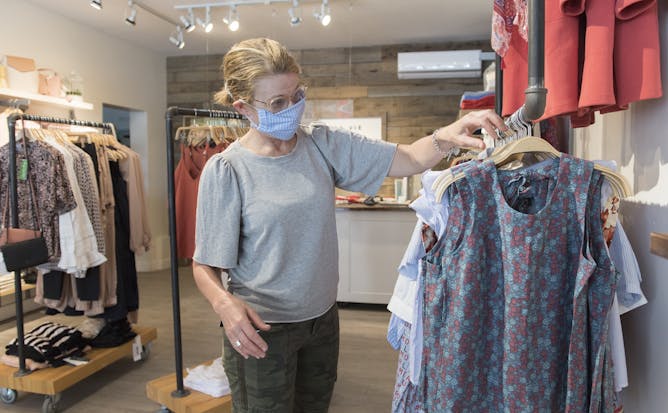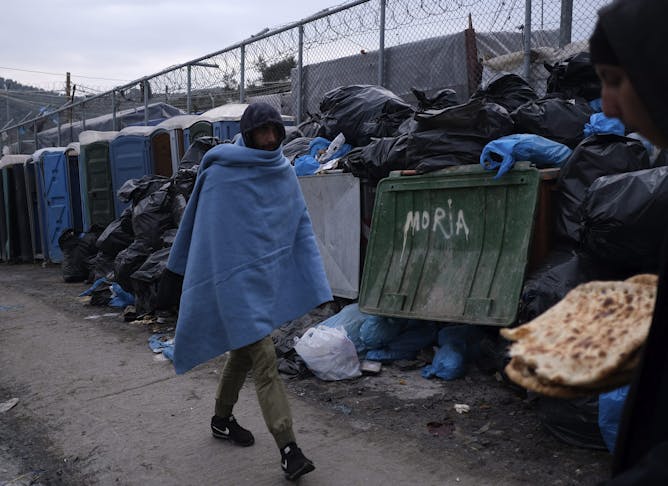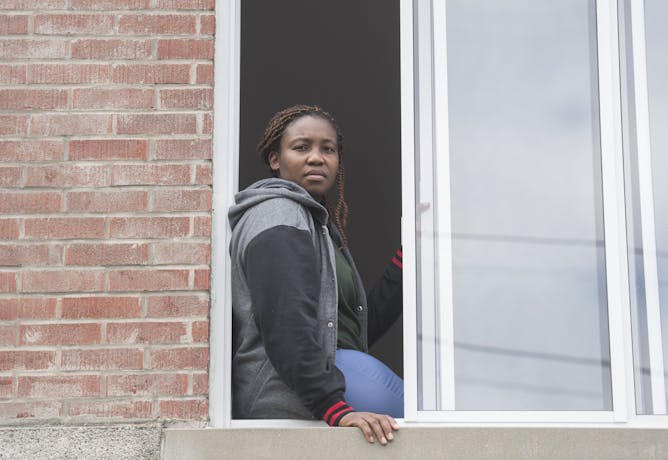|
|
|
|
Joe Biden isn’t interested in Keystone XL. The on-again-off-again 1,900-kilometre pipeline doesn’t “make any sense” economically or environmentally, Biden said in an interview with CNBC last week.
Parts of Canada may disagree with the former vice-president, but it’s worth reflecting on Biden’s words in the current energy climate. Biden says he’ll cancel Keystone XL if elected president in November, BlackRock has pulled its investments out of oilsands companies and Norway’s Sovereign Wealth Fund has excluded key oilsands producers from its portfolio. On top of all that, demand for gasoline and other oil products in the U.S. has reached a 50-year low.
Today in The Conversation Canada, Warren Mabee from Queen’s University takes a closer look at what presidential hopeful Biden said during that interview and finds that it should be a wake-up call for Canada’s energy industry.
Also today:
Regards,
|
Hannah Hoag
Deputy Editor | Environment + Energy Editor
|

|
|

Joe Biden has vowed to kill the Keystone XL pipeline if he is elected president in November.
THE CANADIAN PRESS/Alex Panetta
Warren Mabee, Queen's University, Ontario
Canadian companies depend on the international marketplace, which is demanding cleaner energy products. Without significant change, Canada’s energy sector risks being left behind.
|
Coronavirus News
|

A boutique owner in Montréal arranges clothes at her store on May 24, 2020 as she prepares to reopen amid the COVID-19 pandemic.
THE CANADIAN PRESS/Graham Hughes
M. Tina Dacin, Queen's University, Ontario; Laura Rees, Queen's University, Ontario
As small businesses reopen, they'll need to engage the hearts and minds of both employees and customers by recognizing that they feel emotions differently than they did before COVID-19.
|

Recommendations suggest babies be introduced to food allergens around age six months.
(Pixabay)
Maude Perreault, McMaster University; Edmond S. Chan, University of British Columbia; Elissa M. Abrams, Johns Hopkins University
Introducing food allergens early is the best way to prevent food allergies from developing. Even in a pandemic, the benefits outweigh the very small risk of a severe reaction requiring emergency care.
|

Data transparency on the part of businesses can help inform consumer choices and provide a level of accountability.
(Shutterstock)
Sylvie Albert, University of Winnipeg
Collecting, analyzing, aggregating and communicating data collected from businesses and industries can help consumers make purchasing decisions that align with their values.
|

Racially sorted patients are surveilled, often with negative consequences.
Shutterstock
Sachil Singh, Queen's University, Ontario
The COVID-19 pandemic presents potentially concerning trajectories for race relations. Many of these concerns might even originate within the medical profession.
|

A migrant covered with a blanket passes in front of dumped garbage outside the Moria refugee camp on the island of Lesbos, Greece, Jan. 21, 2020.
(AP Photo/Aggelos Barai)
Dorien Braam, University of Cambridge; Petra Molnar, University of Toronto
Based on how other diseases have moved through refugee camps, there is an urgent need to protect refugees in camps and informal settlements from COVID-19.
|
La Conversation Canada
|

Carole Ze Benedicte, à la fenêtre de son appartement de Montréal, le 16 mai. Demandeuse d'asile d'origine camerounaise, elle a été infectée par la Covid-19 après s'être portée volontaire pour travailler dans un foyer de soins de longue durée.
La Presse Canadienne/Graham Hughes
Estelle Carde, Université de Montréal
Les inégalités sociales de santé relativement à la Covid-19 se repèrent parmi les victimes « officielles » de l’infection, mais aussi parmi celles que le virus atteint sans même les infecter.
|
| |
| |
| |
| |
| |
| |
|
|
|
|
|
|
|